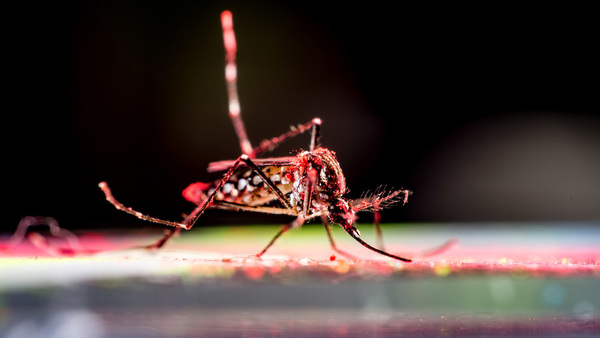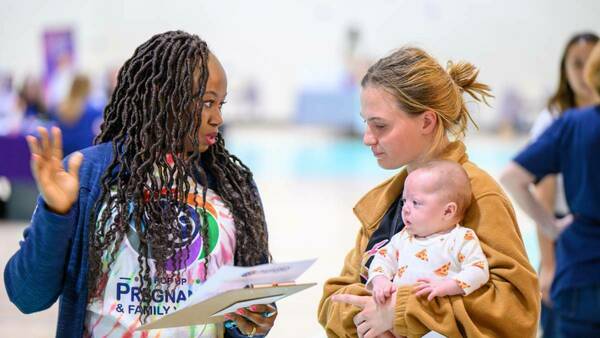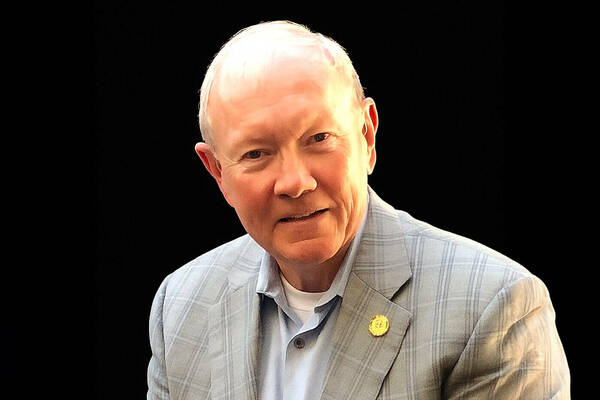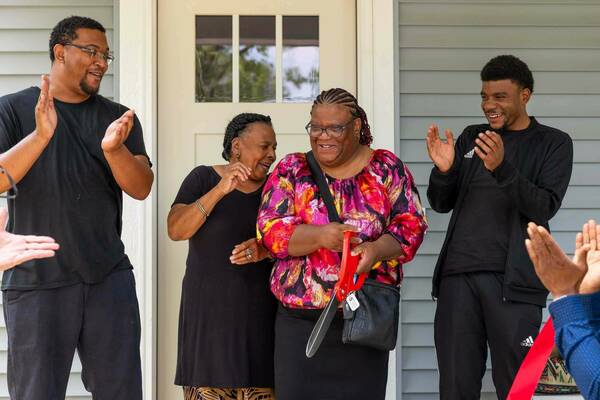ND Expert: Hurricanes like Milton, Helene are the new normal
There is no rest for weary Florida residents who have yet to recover from Hurricane Helene. Less than two weeks since the Category 4 storm made landfall, battering the state and surrounding southeast region, another major hurricane is charting a dangerous path toward Florida’s Gulf Coast.
Hurricane Milton, a Category 5 storm as of Monday, has reportedly reached sustained winds of 160 mph as it threatens a direct hit to the Tampa Bay area. Forecasters expect its path to cross the state, delivering a hit to Orlando residents as well.
Milton’s rapid ascension—and its arrival coming on the heels of an already devastating storm—is the new normal, according to Tracy Kijewski-Correa, professor of engineering and global affairs and the William J. Pulte Director of the Pulte Institute for Global Development, part of Notre Dame’s Keough School of Global Affairs.
Times are changing

“There have been three hurricanes impacting the Big Bend area of Florida in the past 13 months, each with different characteristics and landfalling in areas previously assumed not to be at high risk based on prior historical events,” Kijewski-Correa said. “They came in such rapid succession that the repairs from earlier storms were not even completed before the next struck. The models used to capture storm risk must contend with the fact that the past no longer predicts the future and that impacts can even be compounded by subsequent storms. Our inability to predict the full scope of future, potentially compounding events questions whether we can keep waiting for the storm to build back better. It’s time to build better before.”
An expert on disaster risk reduction, civil infrastructure and housing, and director of the National Science Foundation-supported Structural Extreme Events Reconnaissance (StEER) Network, Kijewski-Correa was recently part of the study team that authored a National Academies report on compounding disasters in Gulf Coast communities.
Increasingly, residents in those communities barely have time to document their losses between storms.
Housing continues to be our greatest vulnerability
“Even in states like Florida with some of the most rigorous building codes, there is no mandate to upgrade homes built before those codes were enacted,” Kijewski-Correa said. “Older pre-code buildings in coastal inundation zones of Florida suffered extreme to complete damage, while those built to modern codes were relatively undamaged. Building codes save property and lives, and reduce the financial burden and community disruption that we all have to bear. We have the engineering solutions to build resiliently, but we lack the political will. In the absence of mandated retrofits, we must continue to create strong insurance, tax and, most importantly, market incentives for owners to upgrade their properties to the latest construction standards or, when necessary, retreat. That is only possible when the growing risk and cost of living in hazard-prone areas is honestly and clearly communicated to the public in multigenerational terms.”
Milton and Helene are a result of human action — and inaction
“There are no natural disasters,” Kijewski-Correa said. “Natural hazards become disasters as the result of human actions. Helene reiterates the importance of heeding warnings, despite prior storm experiences. The failure to do so cost many lives. Both coastal storm surge in Florida and interior Appalachian flooding from Helene were predicted well in advance. Those predictions enabled officials and other trusted local actors to issue actionable guidance on how to prepare and mobilize support for the most vulnerable. Citizens need to heed that guidance. As the climate changes, we will have more extreme rainfall events. These storm events will exceed past precedent, making past experiences less relevant in deciding how to prepare and respond. Reliable guidance delivered by trusted actors must be met with good faith actions by citizens, now more than ever.”
Kijewski-Correa is a faculty affiliate at Notre Dame's Environmental Change Initiative.
Contact: Jessica Sieff, associate director of media relations, 574-631-3933, jsieff@nd.edu
Latest ND NewsWire
- Researchers deconstruct chikungunya outbreaks to improve prediction and vaccine developmentThe symptoms come on quickly — acute fever, followed by debilitating joint pain that can last for months. Though rarely fatal, the chikungunya virus, a mosquito-borne illness, can be particularly severe for high-risk individuals, including newborns and older adults. While the virus is common…
- Eck Institute investigator to strengthen postpartum care for Indiana mothersYenupini Joyce Adams, associate professor of the practice and maternal health lead for the Eck Institute for Global Health at the University of Notre Dame, is partnering with Beacon Health System to pilot a new, first-of-its-kind postpartum care model in the South Bend-Elkhart community.
- Gen. Martin Dempsey to speak at Notre Dame Forum event on ‘Hope, Global Stability and the Role of the United States’Gen. Martin Dempsey, the retired 18th chairman of the Joint Chiefs of Staff, will join University President Rev. Robert A. Dowd, C.S.C., for a fireside chat at 4 p.m. Friday (Oct. 10), as part of the 2025-26 Notre Dame Forum. The discussion, titled “Hope, Global Stability and the Role of the United States,” is part of the exploration of this year’s Notre Dame Forum theme, “Cultivating Hope.” It will take place in Rooms 215/216 of McKenna Hall and will also be livestreamed. The event is free and open to the public.
- University of Notre Dame joins the Global Coalition of Ukrainian StudiesThe University of Notre Dame has joined the Global Coalition of Ukrainian Studies after signing a memorandum of cooperation, formalized Sept. 24, at the Ukrainian Institute of America in New York City. Notre Dame joined four other American institutions that were also publicly welcomed to the coalition at this event: Arizona State University, Columbia University, Manor College and the Shevchenko Scientific Society.
- One year later, Inauguration Build a ‘dream come true’ for Habitat familiesOne year later, work on Inauguration Build 2024 is complete, offering shelter and so much more to five local families.
- Alumni Association and YoungND honor 2025 Domer DozenThe Notre Dame Alumni Association announced its 2025 Domer Dozen cohort, honoring 12 graduates ages 32 and younger for excellence in their contributions in learning, service, faith and work — the core pillars of the association’s mission.













